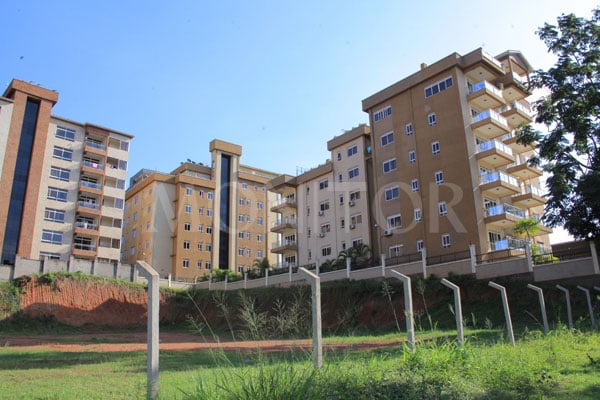Prime
Occupancy in Kampala’s upscale suburbs grows by 12 percent - Report

Apartments in Kampala. Occupancy rates in prime residential suburbs registered a 12 percent year-on- year increase in the last second half of 2021 compared to the last half of 2020. PHOTO | FILE
What you need to know:
- Developers are showing more interest in joint venture options, whereby the landowner cedes the land as their equity contribution to the project.
A growing number of expatriate staff has pushed up occupancy of prime residential accommodation in the second half of 2021 compared to the last half of 2020 .
According to estate agent Knight Frank Uganda report occupancy rates in prime residential suburbs of Kololo, Nakasero, Bukoto, Bugolobi and Naguru registered a 12 percent year-on- year increase in the last second half of 2021 compared to the last half of 2020.
The key driver for this increase is the return of expatriates to the country after travel restrictions due to Covid-19 were lifted.
The details captured in the latest Knight Frank real estate market performance report shows the growth has resulted in a gradual increase in the rent for two and three-bedroom apartments within the prime locations in Kampala and a general improvement in occupancies.
Average rents for two and three-bedroom apartments increased by 4 percent respectively, in the second half of 2021 at about $2,500 (Shs8.8 million) per month as compared to $2,000 (Shs7m) per month in the last half of 2020.
A noticeable increase in demand for one and two-bedroom units has been observed, indicating that fewer expatriate families of three ro five members were coming into the country than was the case previously.
Knight Frank has also registered an increase in inquiries from Ugandans in the diaspora looking to buy property.
The residential market has also registered more constructed units with approximately 400 apartment units in the pipeline, and 150 units expected in Kampala’s prime residential suburbs in the next 12 months, translating into a 9 percent increase in stock and over 75 percent of this stock are 3-bed apartment units.
Rise in joint ventures
Ms Judy Kyanda Rugasira, managing director at Knight Frank, said developers are showing more interest in joint venture options, whereby the landowner cedes the land as their equity contribution to the project.
This is in return for an equivalent number of apartments correlated to the value of the land as a way of entering the development and investment market and mitigating risk from no debt.
The residential sub-sector is still registering an increase in leasing and sales activity and this has been observed in the secondary neighbourhoods and Greater Kampala suburbs of Ntinda, Naalya, Kulambiro, Kisaasi, Makindye, Lweza and Kigo along Entebbe Road because of improved road infrastructure and increased access to services and utilities.
“Tenants are opting for accommodation in these suburbs because of the slightly lower rents, coupled with the quality of available stock which is newer and similar to that provided in the prime residential suburbs,” Ms Rugasira said.
Outlook
Knight Frank is optimistic for the future now that the economy is fully open.
Ms Rugasira said occupiers and investors alike are keen to make up for lost time and money, and increased activity is being observed across property sectors in general.
“We envisage prime office occupancies and rents remaining relatively stable in 2022, on the back of increased leasing activity from the oil and gas sector, in the short to mid-term,” she said.




